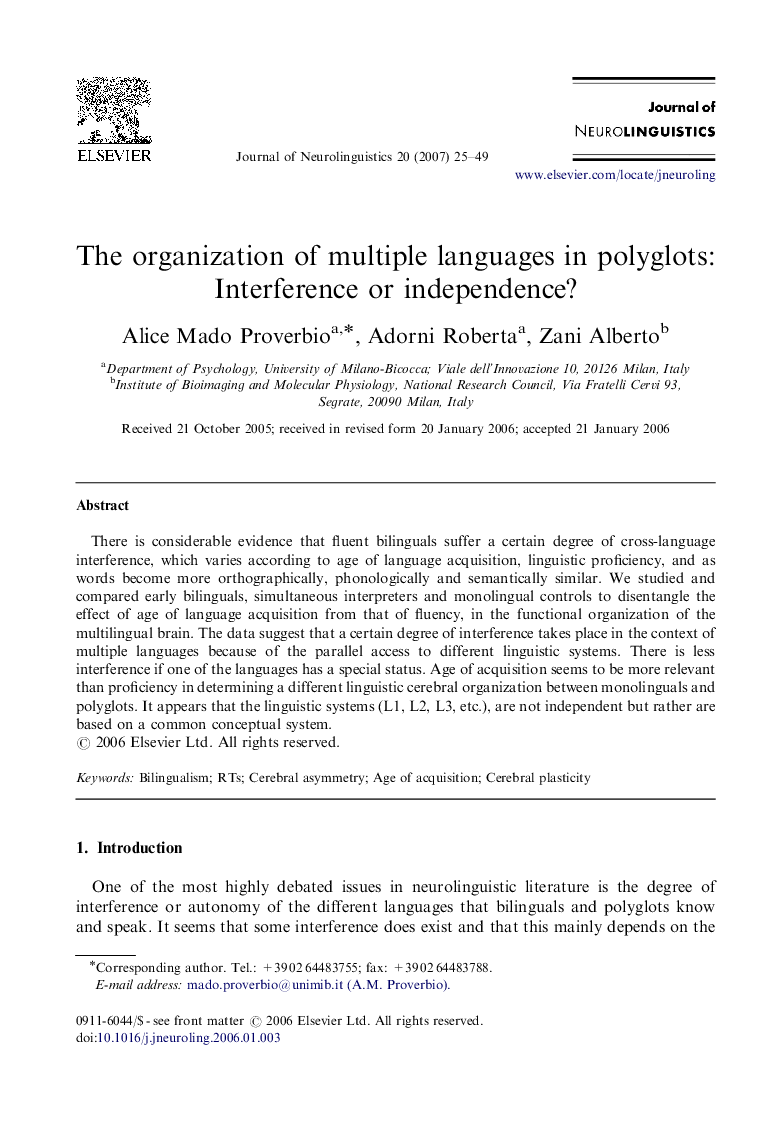| Article ID | Journal | Published Year | Pages | File Type |
|---|---|---|---|---|
| 912147 | Journal of Neurolinguistics | 2007 | 25 Pages |
There is considerable evidence that fluent bilinguals suffer a certain degree of cross-language interference, which varies according to age of language acquisition, linguistic proficiency, and as words become more orthographically, phonologically and semantically similar. We studied and compared early bilinguals, simultaneous interpreters and monolingual controls to disentangle the effect of age of language acquisition from that of fluency, in the functional organization of the multilingual brain. The data suggest that a certain degree of interference takes place in the context of multiple languages because of the parallel access to different linguistic systems. There is less interference if one of the languages has a special status. Age of acquisition seems to be more relevant than proficiency in determining a different linguistic cerebral organization between monolinguals and polyglots. It appears that the linguistic systems (L1, L2, L3, etc.), are not independent but rather are based on a common conceptual system.
